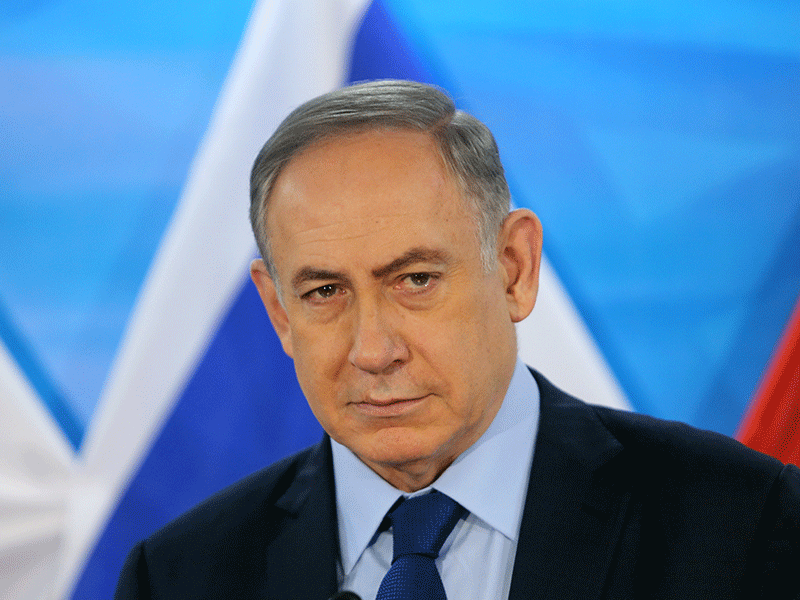Israelis will be heading to the polls on April 9. Given that the Israeli political system can seem perplexing to many foreign observers, it can be useful to review what all the different parties stand for.
Before its dissolution, the governing coalition consisted of five parties. The largest was Likud, which won 30 seats in the 2015 election. The other parties were Jewish Home (8 seats), United Torah Judaism (6), Shas (7) and Kulanu (10). In opposition were the Zionist Union (24), Yesh Atid (11), Joint List (13), Yisrael Beiteinu (6) and Meretz (5).
Under the leadership of Prime Minister Benjamin Netanyahu, the Likud party supports Israeli nationalism, deregulation and pro-business policies. It officially supports a two-state solution with the Palestinians, but maintains that conditions are not right for further concessions, due to the Palestinians’ unwillingness to compromise. Netanyahu frequently shifted positions on issues, in order to keep his diverse coalition together for the past four years.
Jewish Home, led by Naftali Bennett, is a movement of religious nationalists who are opposed to a Palestinian state. They support an expanded Jewish presence in the territories and see settlement as a central imperative of Zionism. On religious issues, they represent national religious Jews. They support increasing the number of ultra-Orthodox Jews who are required to serve in the military.
United Torah Judaism is a coalition of two ultra-Orthodox parties that draw support from the haredim. They advocate for more support for housing and exempting haredim from military service. They oppose activities that violate Shabbat and have opposed measures to extend official recognition to Masorti (Conservative) and Reform Judaism.
Shas draws its support from religious Jews of Sephardi background. It advocates for Sephardim and Mizrachim to be better represented in Israeli institutions and promotes a return to Jewish observance by secular Jews. Formerly moderate in its policies toward the Israeli-Palestinian conflict, the party has become more nationalist over time. It supports exempting the haredi from military service and is hostile toward public celebrations of gay culture.
Kulanu favours implementing measures to reduce economic inequality and curb powerful business interests. It supports a two-state solution and has worked to highlight poverty and unequal social services in Arab-Israeli towns. Kulanu advocates for more official recognition of alternative streams of Jewish observance.
READ: ROYTENBERG: THE MAKING OF THE MODERN MIDDLE EAST
The largest opposition party in the last Knesset was the Zionist Union. Composed of a coalition of Labor and Hatnuah, the Zionist Union is in favour of increasing funding for social housing and reducing inequality. It supports a more pro-active approach to the peace process, as a means of ending the current impasse.
Joint List is a coalition of parties that draw their support from Israeli Arabs. They represent a variety of views – from Islamist, to Marxist, to Palestinian nationalist – and advocate for better treatment of Israel’s Arab minority.
Yesh Atid was founded in 2012 by journalist Yair Lapid. Its priorities include government reform and ending the military exemption for haredim. It is closer to the Zionist Union than to Likud on issues of war and peace.
Yisrael Beiteinu, which is led by Avigdor Liberman, draws most of its support from Russian immigrants. It supports a two-state solution, including the transfer of some Arab-Israelis to a future Palestinian state. It has criticized concessions made by past Israeli governments to the Palestinians. It is a secular party that advocates for the interests of immigrants. It left the governing coalition only a few weeks before it fell.
Meretz is described as a social democratic, environmentalist and anti-occupation party. It advocates for social measures to advance gay rights and supports a two-state solution to the conflict with the Palestinians. It has historically identified with Israel’s peace movement, having played a role in the government that negotiated the Oslo accords.
In the run-up to the April election, some of these parties have split and new ones have appeared. Whether these manoeuvres will lead to significant changes in the next government is now up to Israeli voters.







